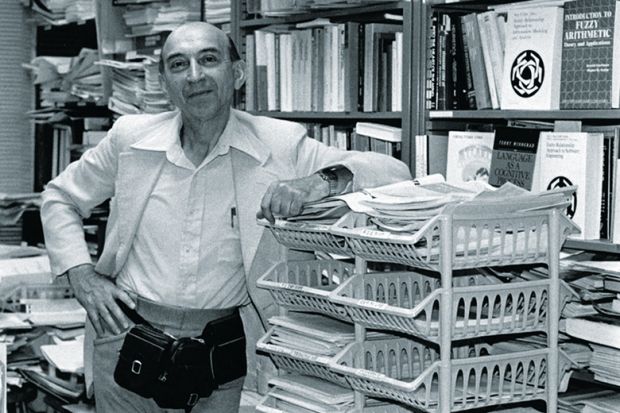The computer scientist who invented the concept of “fuzzy logic” has died.
Lotfi Zadeh was born in Baku, Azerbaijan in February 1921, the son of a journalist and a paediatrician. His parents were both Iranian citizens, so the family moved across the border and he attended an American Presbyterian missionary school, where he was so impressed by the teachers that he became determined to live in the US. After taking a degree in electrical engineering at the University of Tehran (1942), he went to the US for his graduate studies, gaining a master’s in electrical engineering at the Massachusetts Institute of Technology (1946) and a first job as an instructor in electrical engineering at Columbia University.
After securing a PhD (1949), Professor Zadeh was appointed assistant professor in 1950 and promoted to full professor in 1957, teaching electromagnetic theory, circuit analysis, system theory, information theory and sequential machines.
In 1959, he left Columbia to join the electrical engineering department at the University of California, Berkeley, where he remained until he retired and became emeritus professor of computer science in 1991. This included five years as head of department, during which it was renamed the department of electrical engineering and computer sciences. He was to play a central role in the development of the new discipline.
While at Columbia, Professor Zadeh helped to develop a method of data sampling known as z-transformations, which have proved vital for digital processing. His work at Berkeley with Charles Desoer underlies modern approaches to systems analysis and control. Even more significant was his creation of the concept of “fuzzy logic” – his pioneering 1965 paper “Fuzzy sets” has been cited more than 90,000 times – and the related notions explored in his selected papers, published as Fuzzy Sets, Fuzzy Logic, and Fuzzy Systems in 1996.
The crucial impact of this was to model the necessarily imprecise styles of thinking that people use in everyday life. The theory of fuzzy logic, Professor Zadeh once told an interviewer, “opens the door to a major enlargement of the role of natural languages in scientific theory. People use formulas, mathematics and numbers when doing scientific work, but this particular development will make it possible to use natural language in scientific discourse.” What he also described as “a significant paradigm shift” has proved its worth in artificial intelligence as well as in technologies ranging from air conditioning and washing machines to stock trading and weather forecasting.
Professor Zadeh died on 6 September and is survived by his son Norman.




